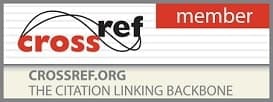- Printed Journal
- Indexed Journal
- Refereed Journal
- Peer Reviewed Journal
P-ISSN: 2394-1685 | E-ISSN: 2394-1693 | CODEN: IJPEJB
Impact Factor (RJIF): 5.38
2020, Vol. 7, Issue 3, Part A
Physiological and anthropometric parameters of Cameroonian schoolchildren (10 to 12 years) to physical education and sports (PES) sessions
Author(s): Peguy Brice Assomo Ndemba, Abdou Temfemo, Clarisse Noel Ayina Ayina, Falone Deville Nya, Jerson Mekoulou Ndongo, Wiliam Richard Guessogo, Samuel Honoré Mandengue and Laurent Serge Etoundi-Ngoa
Abstract:
Physical Education and Sports (PES) sessions are the only opportunities for many children to participate in physical activity and sport. The objective of this study was to evaluate changes in anthropometric parameters, blood pressure profile and cardiorespiratory fitness induced by PES sessions among Cameroonian schoolchildren. Participants were 80 students (age: 10–12 years; boys n = 45; girls n=35) who exercised only during physical education (2 × 45-min periods per week). Anthropometric (weight, height, waist circumference) and physiological parameters (systolic blood pressure: SBP, diastolic blood pressure: DBP, resting heart rate : HRr, cardiorespiratory fitness : VO2max) assessments were conducted in two trials separated by three months. An investigation sheet allowed the collection of dietary habits. The prevalence of obesity remained constant throughout the study (1.25%). In boys and girls, weight and body mass index (BMI) increased significantly (P<0.05). For physiological parameters (DBP, HRr, VO2max), no significant difference (P>0.05) was found after three months in the school children. PAS and PAD had significantly decreased (P<0.05) among girls. Regular breakfast was associated with lower weight status among students. In contrast, fruit consumption was associated with greater weight gain among students. PES sessions after three months do not have sufficient impact on the improvement of anthropometric, physiological and performance parameters in students; results that are linked to an imbalance between very high calorie dietary intakes and energy expenditure.
Pages: 20-25 | 712 Views 85 Downloads
Download Full Article: Click Here
How to cite this article:
Peguy Brice Assomo Ndemba, Abdou Temfemo, Clarisse Noel Ayina Ayina, Falone Deville Nya, Jerson Mekoulou Ndongo, Wiliam Richard Guessogo, Samuel Honoré Mandengue, Laurent Serge Etoundi-Ngoa. Physiological and anthropometric parameters of Cameroonian schoolchildren (10 to 12 years) to physical education and sports (PES) sessions. Int J Phys Educ Sports Health 2020;7(3):20-25.








 Research Journals
Research Journals